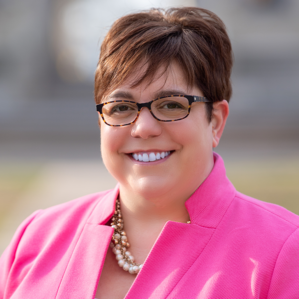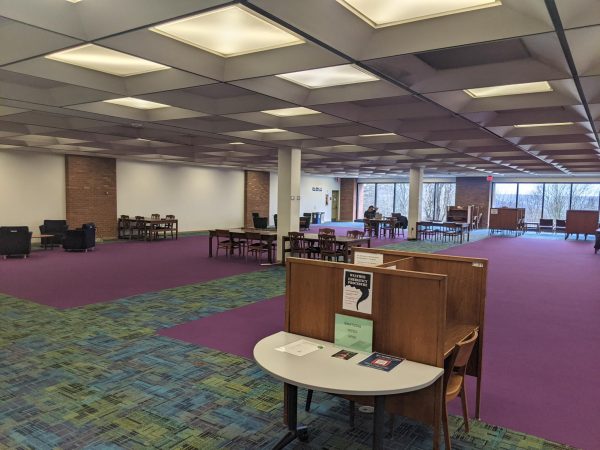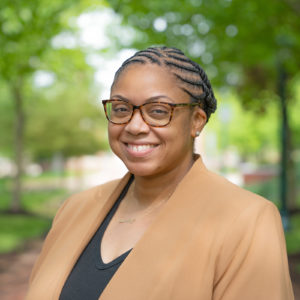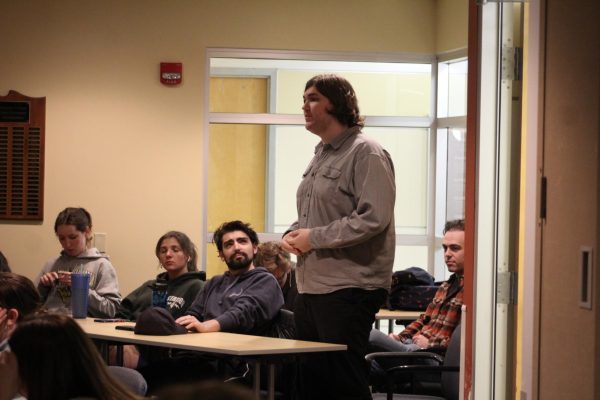Office of Admissions updates ASG on Class of 2021 projections
Vice President for Enrollment and Dean of Admissions Cornell LeSane addressed Allegheny Student Government’s general assembly on Tuesday, Nov. 15, to report on the facts and figures of the Class of 2020.
LeSane said the Office of Admissions began with a goal of matriculating 580 first-year students. He said they met this goal with 582 total students.
The Class of 2020 is the first since the Class of 2017 to meet its expected class size. The Classes of 2018 and 2019 were both under-enrolled.
We are really trying to improve the name recognition of Allegheny abroad.
— Cornell LeSane
The first-year class, according to LeSane, is also one of the most diverse in Allegheny’s history. He said 24 percent of the class is first-generation students, 28 percent is “students of color,” the highest in Allegheny’s history, and the students represent 24 countries.
“We are very excited about the representation of states and countries,” LeSane said.
In addition to the increase in diversity among the new class, LeSane said they are also seeing improvements in their application numbers for the next class. For the Class of 2021, the number of applications is up from last year at this time by 50 percent and the number of early applications is up by 30 percent, according to LeSane.
LeSane said as the college receives more applications, it can be more selective, which causes its acceptance rate to decline and its ranking to rise.
Despite the recent success, LeSane said they have to be mindful that these numbers may begin to drop off. He said the current population trends mean that fewer students are going to be graduating from high school in the next few years. He said this will create a smaller pool of applicants for Allegheny to draw from.
“You have a market that, in some ways, is oversaturated,” LeSane said.
Responding to concerns from one senator, LeSane explained that even as the expected pool of students begins to decline, Admissions will remain as selective as possible while choosing members for the incoming classes.
This is an issue all colleges will face, according to LeSane. He said he feels that Allegheny will be ready to handle the challenge.
“This data has been out there for 20 years,” LeSane said.
Following his report, LeSane opened the floor for questions. Luke McBride, ’18, director of finance, asked if LeSane felt good about the enrollment of the Class of 2021. LeSane said he could not be certain, but said he was hopeful.
“It’s not often you can say you are up by 50 percent in applications … so we are off to a good start,” LeSane said.
Senator Stella Pratt, ’18, asked about Allegheny’s new test optional program, whereby applicants would not be required to submit their results on the SAT or ACT exams. According to LeSane, the new policy has been great for students and fits in with the values of Allegheny.
“We have always talked about a holistic review process at Allegheny and we are truly backing it up,” LeSane said.
Making Allegheny test optional, according to LeSane, takes the pressure off students, because it means it is not the final factor that will determine whether they are accepted or denied.
In addition to its efforts in the United States, LeSane said they are also working to attract more international students, a group whose numbers have remained constant over the last few years. He said part of the effort to increase the number of international students on campus was hiring an international recruiter.
“We are really trying to improve the name recognition of Allegheny abroad,” LeSane said.
Chief of Staff Hayden Moyer, ’17, updated the assembly on the proceedings of the College Committees Council. Moyer said in its more recent meeting, the Academic Standards and Awards Committee discussed a withdrawal policy by which a student could be removed from the class for consistent absence and lack of work without the student’s permission. According to Moyer, it has been removed from the committee’s agenda.
“The reason they have this would be as a last resort,” Moyer said.
Moyer said the idea has only been discussed, and no language has yet been drafted that would implement such a policy.
The Campus Life and Community Standards Committee, according to Moyer, is also currently working to make the campus Statement of Community more enforceable. He said the committee is currently working to do this by matching up parts of the statement with the student conduct policy.
The discussion, Moyer said, came from conversations in ASG during the spring 2016 semester.
ASG also approved, for its first week, an Allegheny chapter of Starts With Soap, an organization that seeks to provide students living in poverty with basic personal care products.
Matthew Steinberg, ’20, said he decided to get involved with the club because he felt he had not been very active in volunteer work before coming to Allegheny.
“I really wanted to change that coming out of high school, going into college,” Steinberg said.
SWS must be approved a second time following Thanksgiving break before it is officially recognized as a club on campus.








